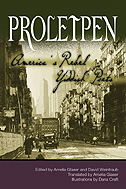Just coming of age when Gorbachev appeared, they were figuring out their own identities as the very foundations of their society were being questioned for the first time. And then they graduated just as the USSR collapsed and they had to figure out a completely new life as young adults, with no models to follow. (-Hessman)
 Hessman was strangely absent from her own film, but the way her subjects spoke to the camera evoked a distant addressee, as though they were sharing their experience with someone who would never really know the full story, but whose relationship to them mattered. Did perestroika itself, the viewer might wonder, with its lines for MacDonalds, its blue-jeans, its Pepsi Cola, also have an absent American addressee? Maybe this phantom-like American presence is why the film made me think of my perestroika. I turned fourteen in 1989, and my bedroom was plastered with Soviet gymnasts: Yelena Shushunova, Dmitri Bilozerchev, Svetlana Boginskaia. That year I started taking Russian. A few months later Nadia Comaneci defected from Rumania and the Berlin wall fell. In 1991 I came home from Russian camp, newly enamored of Russian folk songs, a couple of weeks before the putsch that put Yeltsin in power. This coincidence of my personal passions with the riveting geopolitical changes of the early 90's is probably why I stayed in Russian, long after I left gymnastics and choir for other hobbies. And yet I went through high school with the Scorpions' "Wind of Change" playing as background music, but didn't stop to think about the words until years later, when I listened to someone in Ukraine play it on a guitar and sing it in broken English.
Hessman was strangely absent from her own film, but the way her subjects spoke to the camera evoked a distant addressee, as though they were sharing their experience with someone who would never really know the full story, but whose relationship to them mattered. Did perestroika itself, the viewer might wonder, with its lines for MacDonalds, its blue-jeans, its Pepsi Cola, also have an absent American addressee? Maybe this phantom-like American presence is why the film made me think of my perestroika. I turned fourteen in 1989, and my bedroom was plastered with Soviet gymnasts: Yelena Shushunova, Dmitri Bilozerchev, Svetlana Boginskaia. That year I started taking Russian. A few months later Nadia Comaneci defected from Rumania and the Berlin wall fell. In 1991 I came home from Russian camp, newly enamored of Russian folk songs, a couple of weeks before the putsch that put Yeltsin in power. This coincidence of my personal passions with the riveting geopolitical changes of the early 90's is probably why I stayed in Russian, long after I left gymnastics and choir for other hobbies. And yet I went through high school with the Scorpions' "Wind of Change" playing as background music, but didn't stop to think about the words until years later, when I listened to someone in Ukraine play it on a guitar and sing it in broken English.When the film was over I looked out at Natalia's students and realized that most of them were born after 1991. They have as little a recollection of Gorbachev's Soviet Union as I do of Nixon's presidency. Chances are good, though, that they, and I, will look back at 2011 as a defining moment, a moment that tied our lives to the enormous, shifting, global politics around us, a moment we lived through but will not have the space to assess for a long time. The other day Mikhail Gorbachev wrote an Op-Ed in the New York Times that suggested he is, two decades later, still assessing his perestroika, and still holding out hope:
Looking at those faces, one wants to believe that Egypt's democratic transition will succeed. That would be a good example, one the entire world needs.




